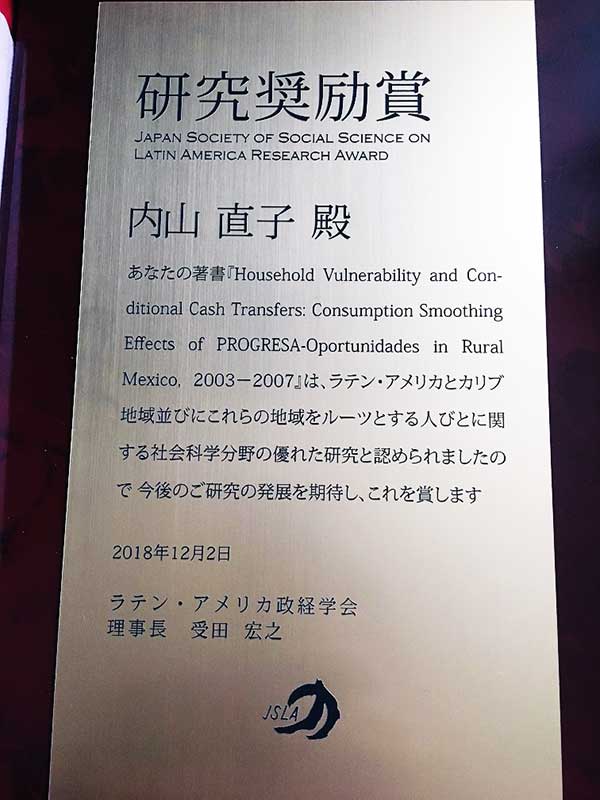Professor Naoko Uchiyama Awarded JSLA Encouragement Award
December 6, 2018
On Sunday the 2nd of December (2018), TUFS specially-appointed lecturer Professor Naoko Uchiyama (TUFS World Language and Society Education Centre) was awarded the 2018 Encouragement Award at the 55th Japan Society of Social Science on Latin America (JSLA) Academic Conference.
This award was created in 2014 to celebrate the JSLA’s 50 year anniversary, and aims to develop and revitalize social science-based research on the Latin American and Caribbean regions, and research on peoples with roots in these regions, in Japan, with a particular focus on encouraging young researchers. Every year, members of the JSLA under the age of 50 are recommended by fellow members based on their published books and papers, and the candidate whose research achievements are considered particularly outstanding is chosen by the selection committee.
Professor Uchiyama’s awarded research and the selection reason given by the committee are as follows.
Awarded Research:
Household Vulnerability and Conditional Cash Transfers: Consumption Smoothing Effects of PROGRESA-Oportunidades in Rural Mexico, 2003−2007. Kobe University Social Science Research Series, Singapore: Springer, 2017.
Selection Reason:
This paper is an empirical investigation into the vulnerability of impoverished households in Mexico’s agricultural areas and the results of PROGRESA-Oportunidades, a conditional cash transfer policy, through the analysis of panel data ranging from 2003 to 2007. This period was before the Lehman Shock, making it a relatively stable macroeconomic situation. This paper contributes to understanding the effects of micro policy interventions that brought to light these vulnerabilities.
(Omission)
As mentioned above, this paper yielded outstanding research results on the vulnerabilities of impoverished Mexican households, and it is expected to be widely referred to as a leading document in both general and Mexican poverty research in Japan and abroad. The conclusions drawn by this research, namely that CCT had a certain effect on reducing the vulnerability of impoverished households but did not completely offset the impact of the external shock of rising food prices, are highly persuasive and backed by an in-depth quantitative analysis, making the suggested policies based on this worth consideration.
(the rest is omitted)

